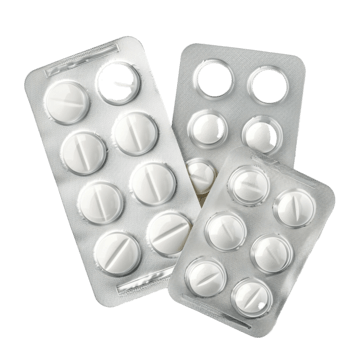Clozapine

Clozapine 12.5mg, 25mg, 50mg, 100mg, 200mg
Clozapine is an atypical antipsychotic medication primarily used to treat treatment-resistant schizophrenia, a condition where patients have not responded to other antipsychotic drugs. It works by affecting neurotransmitters in the brain, particularly dopamine and serotonin, thereby helping to reduce the symptoms of psychosis, such as delusions and hallucinations. Clozapine is often administered with careful monitoring due to potential side effects, including agranulocytosis, a serious decrease in white blood cells.
Order NowDescription
Clozapine is an atypical antipsychotic medication primarily used to treat treatment-resistant schizophrenia. It is effective in reducing the symptoms of schizophrenia and is often prescribed when other antipsychotic medications have failed. Clozapine works by influencing various neurotransmitters in the brain, particularly dopamine and serotonin, to help stabilize mood and behavior.
Uses / Indications
- Treatment-resistant schizophrenia
- Severe suicidal behavior in patients with schizophrenia or schizoaffective disorder
- Reduction of recurrent depressive episodes in individuals with schizoaffective disorder
Dosage and Administration
Adults:
Initial dose typically starts at 12.5 mg once daily. This may be increased gradually to 300-900 mg per day based on the patient’s response and tolerability.
Note: Dosage may vary based on individual patient needs and must be carefully managed by a healthcare professional.
How It Works (Mechanism of Action)
Clozapine primarily acts as an antagonist at dopamine D2 and serotonin 5-HT2A receptors in the brain. By blocking these receptors, clozapine helps reduce symptoms of schizophrenia. Additionally, it has effects on other neurotransmitters which contribute to its ability to improve mood and behavior.
Side Effects
Common side effects:
- Sedation or drowsiness
- Weight gain
- Increased salivation
- Dizziness
Rare/serious side effects:
- Agranulocytosis (a potentially life-threatening drop in white blood cell count)
- Seizures
- Cardiomyopathy
- Myocarditis and pericarditis
Seek medical attention if serious side effects occur.
Precautions / Warnings
- Regular blood tests are required to monitor white blood cell counts.
- Inform your doctor if you have a history of seizures, heart disease, or bone marrow disorders.
- Use caution if combining with other medications that may lower the seizure threshold.
Drug Interactions
Clozapine may interact with:
- Other antipsychotics
- Medications that have sedative effects
- Certain antibiotics and antifungal medications
- Anticonvulsants
Always inform your healthcare provider about any other medications or supplements you’re taking.
Storage Instructions
- Store at room temperature (20°C–25°C / 68°F–77°F).
- Keep away from moisture, heat, and direct light.
- Keep out of reach of children.
Missed Dose / Overdose
Missed a dose?
Take it as soon as you remember. If it’s almost time for your next dose, skip the missed one. Do not double up.
Overdose symptoms:
- Extreme sedation or drowsiness
- Seizures
- Increased heart rate
- Low blood pressure
Contact a poison control center or seek emergency medical help immediately.
Contraindications
- Known hypersensitivity to clozapine or any of its components
- History of severe bone marrow suppression or agranulocytosis
- Concurrent use of certain medications (such as other clozapine-containing products)
Brand Names / Alternatives
- Clozaril
- FazaClo
- Versacloz
- Generic name: Clozapine

